How to Tell If You Have Low Serotonin
And If It Is Causing Your Depression
When we think of depression we often think of low serotonin. Depression is a serious issue world wide and the problem doesn’t seem to be getting better or going away any time soon. As you know, I am a big believer in addressing the individual person and their root causes, not giving the same drug (or same supplement for that matter) to every person who walks in the door with depression.
The SSRI medications (selective serotonin reuptake inhibitor drugs) are often used for depression and often on the theory that depression is caused by low serotonin. While this is still an unproven theory, we do know that serotonin is involved mood and may play a role in one’s depression. Therefore, looking at low serotonin, it causes, and how to fix it, may be a solution for some (but not everyone).
If you read one of my recent posts, on the “types of depression”, https://trufoodsnutrition.com/how-depression-can-look-different-and-root-causes/ you know that not everyone’s depression is the same. There are signs that depression may be due to low serotonin, or low dopamine or a head injury, for instance. Based on which one would require a different protocol. You also may be low in not just one neurotransmitter (NT) or you may be low in neurotransmitters and have other factors impacting your depression!
I will share what a low serotonin depression can look like, what may be causing it and how to fix it. A drug doesn’t fix your low serotonin (if that is the issue for you), only masks the problem underneath. You may feel better. However, you may also experience side effects such as increased suicidal ideation, low sex drive, feeling numb, and much more. It is up to you to decide the best course of action for your overall well-being.
What Is Serotonin?
Serotonin was first discovered in the 1950’s in the blood stream of animals and took several decades to discover it in the brain as a NT (3). NT’s are endogenous chemicals that allow the transmission of signals from one neuron to another across the synapse. Each neuron can produce several different NT’s. Neurotransmitters can be excitatory or inhibitory or can be both. For instance, GABA is inhibitory, acetylcholine is almost always excitatory, and Serotonin can be both.
Excess inhibition or too much excitation can lead to mood and mental health disorders. Most NT’s including serotonin are amino acids that require dietary protein, vitamins, minerals, phytonutrients and quality foods in the diet.
For instance, serotonin production and regulation require B12, folate, vitamin C, vitamin D, tryptophan, magnesium, DHA, zinc, inositol, optimal thyroid function, exercise and optimal gut function. (1, 3) If one of these factors is off kilter, your serotonin level may suffer.
Serotonin is not just involved in mood regulation but also controls appetite, the sleep-wake cycle, motor control, immune function and pain perception. For instance, it is why you may also be more sensitive to pain and can be a factor in IBS and in insomnia (serotonin converts to melatonin). (1)
The precursors for making serotonin are tryptophan and 5-hydroxytryptophan (5-HTP), and requires cofactors B6, folate and vitamin C. (1)
The Tryptophan Quandary
Tryptophan is the least abundant amino acid in protein. Tryptophan tends to be the “runt” of the amino acids and when eating a protein rich meal, not as much tryptophan may get into the brain. (3,4) (I always think of it as “tripping” and falling behind all the other amino acids that are racing to the brain).
What really happens is that when you eat a protein rich meal, tryptophan competes with these other amino acids in the protein to cross over the blood brain barrier. Since there is not as much tryptophan in these protein rich foods as other amino acids not as much tryptophan enters the brain compared to the other amino acids. (2)
Poor Tryptophan, but he CAN catch a break!
You can get more tryptophan into the brain if you eat a high carb, low protein meal or snack. (2) You don’t need to eat all your meals and snacks this way, but this is an effective way to get more into the brain. What happens is that when you consume the carbs from plants, it causes a release of insulin. This causes the muscles to take up the non -tryptophan amino acids to use as fuel first, thus leaving tryptophan first in line to cross the BBB for brain access (4)
This may be the reason why some people with depression crave more carbs as it may be your body’s way of trying to get the tryptophan into the brain. (2) It is also a reason why I do not suggest a very low carb/keto diet for those with depression.
In one study they used butternut squash seeds and squash seed bars due to the high tryptophan to protein ratio. You can also try this with pumpkin seeds, sesame seeds, or sunflower seeds. (5)
How Neurotransmitters Work
I am going to do my best to make this understandable!
- An action potential (electrical message) arrives at the presynaptic neuron.
- When this happens, the NT being stored in a synaptic vesicle starts to move toward the end of the membrane and fuses with it. (think of the vesicles as tiny closets that store NTs and the action potential gets the NT to come out of its closet).
- Once the NT is fused at the membrane of the presynaptic neuron, the NT, in this case serotonin, is then released into this space between the presynaptic neuron and the post synaptic neuron called the synaptic cleft. (you may also hear it referred to as the synapse)
- The neurons talk to each other at the synapse. This area between the two neurons contains “transport taxis” to recycle NTs.
- Then the serotonin will dock to its receptor site of the post synaptic neuron.
- Once it bonds to the post synaptic neuron, this action delivers a message by calling forth a second messenger within the cell to induce gene transcription, open or close gates or other messages.
- The NT (serotonin) then leaves the receptor site of the post synaptic cell and is transported back into storage (in the vesicles) by “reuptake transporters”.
- Thus, your NT’s are constantly being recycled. They do not stay in the synaptic cleft area!
- These messages can only travel in one direction and the process repeats itself each time there is an action potential. Think of this entire process as passing information from one neuron to another neuron.
(1)
How a Selective Serotonin Reuptake Inhibitor (SSRI) Works
You may think that an antidepressant “gives you” more of the neurotransmitter that you are low in. No, an SSRI medication does not give you serotonin. What it does do, is take the serotonin that you do have and keeps it in the synaptic cleft until it burns out rather than recycling the NT which is the natural and normal process.
- Normally 85% of the NT’s in the synapse are recycled back into storage by these “transporters”
- With an SSRI, these transporters are blocked. (think of it as now the taxi cabs cannot get the serotonin to the post synaptic neurons protein receptor site where it needs to dock and then get a ride in the taxi cab back to its vesicle (the closet) afterwards). The full process may not get fully completed.
- This leaves more serotonin in the synapse which can improve mood
- BUT since the serotonin is not being recycled, there may be more degradation and loss, meaning less (not more) serotonin and can eventually deplete the NT. (3)
- Here is another way of looking at it. You start on an SSRI. It takes about 4-6 weeks to “kick in” and you start to feel better. Since there is a lot of serotonin now in the cleft, the receptor sites on the post synaptic neuron may down regulate (to avoid taking in too much serotonin). Now you start to feel worse again. The doctor increases your dose. Now there is more serotonin in the cleft. Now the receptor sites down regulate even more. This means there is less recycling so less serotonin production. You start to feel worse again. Doctor may say to try a different med or up the dose even more. You decide to go off your medication since its not working. But you have down regulated the receptor sites and the sites have not had time to rebuild so if you do a rapid taper you feel even worse. The receptor sites need time to rebuild so that you have adequate amount of receptor sites on the post synaptic neuron. Some say that the receptor sites after a period may never rebuild and can then end up affecting sleep, hormones, thyroid and more
(1, 3)
What Can Cause Low Serotonin
The reason why I am not in support of the chemical imbalance theory and low serotonin theory is because is stops right there. It is based on the belief that everyone with depression has low serotonin and a chemical imbalance and this just isn’t true. Also, from what I have seen from medical professionals, if they do think it is caused by low serotonin, why doesn’t anyone ask why? What is causing the low serotonin? As far as I know, most people are not born depressed so how did low serotonin “just happen”?
Odds are you may identify with more than one of these on this list:
- The Standard American Diet
- Eating refined carbs
- A low protein diet
- A diet low in B vitamins
- Low in essential fatty acids
- Using stimulants (caffeine, drugs)
- Excessive alcohol intake
- Heavy metal and other toxins
- Glyphosate, pesticides, herbicides,
- Artificial sweeteners
- Blood sugar dysregulation
- Excessive/chronic stress
- Sedentary lifestyle
- Diet low in tryptophan (usually a vegan or vegetarian diet)
- Disrupted gut microbiome, intestinal permeability
- Some medications
- Chronic ongoing stress, increase in cortisol production
- Systemic Inflammation
(1, 6, 7)
Signs of Low Serotonin
If 5 or more of these sound like you, you may be low in serotonin
- Emotional, often for no reason
- Tearful for no reason
- Sensitive to sounds, loud noises
- Unprovoked anger
- Sensitive to pain-this may have coincided with your depression. May be magnified. May be diagnosed with fibromyalgia
- Prefer to be alone
- Light sleeper, easily woken
- As a child: very shy, a worrier, low self-esteem, bad tantrums
- Suicidal thoughts
- Perfectionist
- Controlling
- Crave carbs and sweets, especially at night
- Are dealing with addiction, whether to drugs, alcohol, food, video games, etc.
- PMS symptoms
- Feel better when you are on an SSRI (at least in the beginning)
(1, 7)
Low Serotonin Fixes
- Add in foods that are rich in tryptophan. These include cottage cheese, beef liver, salmon, chicken, tempeh, pumpkin, squash seeds and peanut butter.
- Look at the list above and address your root causes. Not sure how to go about doing so? Please work then with a holistic professional who specialized in depression!
- Add in a high- quality B complex, Magnesium Threonate, and vitamin C.
- Take 5-HTP 30 minutes before bed time. Start with a low dose and gradually increase until you get to 300 mg. If 5-HTP doesn’t help, try tryptophan in between meals on an empty stomach. (DO NOT add in amino acids such as tryptophan if on an SSRI unless you discuss this with your health care provider-you do not want to cause serotonin syndrome)
- Make dietary adjustments working with a health professional
- Get tested! Take the Organic Acid Urine Test and have the health professional review the results with you and create an individualized plan for you based on the test results and all your other information provided.
(1, 6, 7)
Bottom Line
Low serotonin may be a contributing factor to your depression and if so, identify what is the root cause of your low serotonin. However, often there is more than one factor involved for depression. Inflammation is always a factor in depression so that will need to be addressed as well!
If you are currently taking a medication for your depression, do not just discontinue. Work with your health care professionals to help address your root causes and discuss a taper plan when applicable for you
Sources
(1) Bauman, E. & Friedlander, J. (2014) Therapeutic Nutrition. CA: Bauman College
(2) http://americannutritionassociation.org/newsletter/focus-tryptophan
(3) https://www.ihealthtube.com/content/only-two-ways-raise-brain-serotoin-levels
(4) https://nutritionfacts.org/video/a-better-way-to-boost-serotonin
(5) https://nutritionfacts.org/video/the-best-way-to-boost-serotonin
(6) Marz, R. (1999) Medical Nutrition. 2nd Edition. OR: Omni Press
(7) Hyman, M. (2009) The Ultra Mind Solution. NY: Scribner

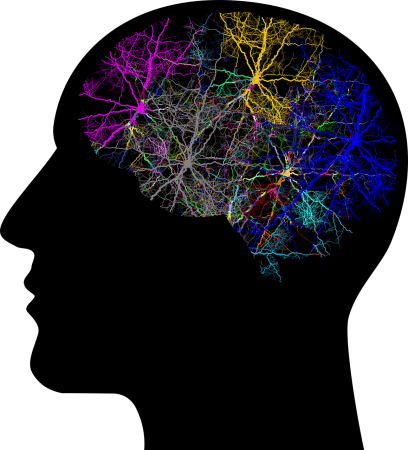
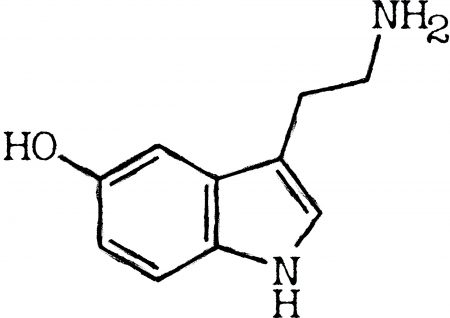
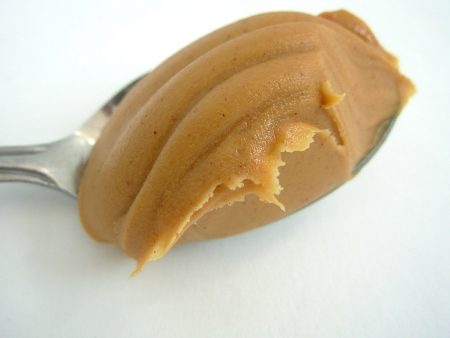
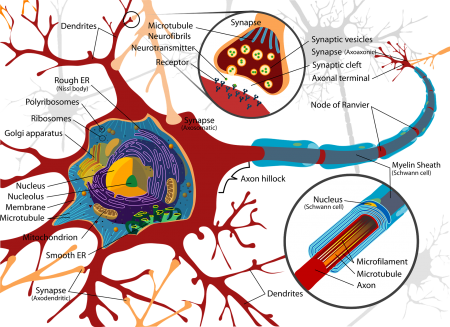
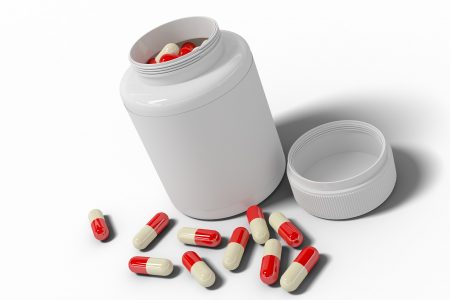


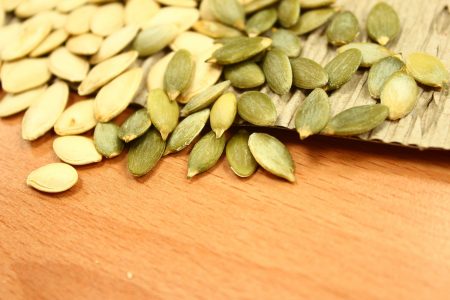
Thank you Sandra!!